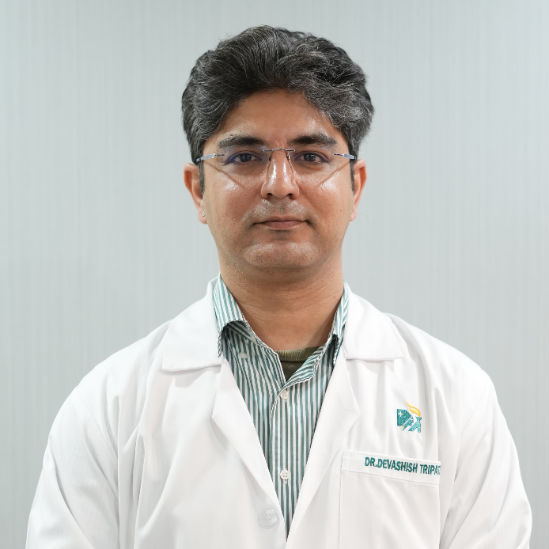Stem Cell Research And Therapy
Stem cell research and therapy investigate the potential of stem cells to treat various diseases, regenerate tissues, and address conditions like Alzheimer's, cancer, etc. Discover the types, benefits, challenges, and prospects of stem cell treatments.

Written by Dr Shreya Sarkar
Last updated on 3rd Jul, 2025
Stem Cell Research and Therapy: Types, Merits, Limitations, and Future Prospects
Stem cells act as an integral part of sustaining, developing, and repairing a wide variety of cells that characterise the human body. They have the power to develop into specialised cells, which can include nerve cells, bone cells, blood cells, muscle cells, and more. Since stem cells can restore themselves after long periods, they are also called regenerative cells.
Researchers have found that stem cells can provide promising results in advancing medical research to treat serious health conditions. These include genetic health complications to cognitive disorders and help to treat blood diseases and cancer, diabetes, and cardiac disease to Alzheimer's disease.
This article explores everything about stem cells, their types, the benefits of stem cell treatment, the challenges associated with it, and more.
What are the Types of Stem Cells?
Several types of stem cells can be obtained from different sources for purposes like research and medical therapies. Here are the three main types of stem cells:
Embryonic Stem Cells: As the terminology suggests, embryonic stem cells are those cells derived from a developing foetus' embryos of three to four days. At around this point, the embryo is known as a blastocyst and consists of about 150 cells. These stem cells are arguably of greater potential for regeneration of new cells in treatment than adult stem cells.
Adult Stem Cells: The adult stem cells are derived from fully developed tissues and organs. They help repair and replace affected areas where they live. An example of such stem cells is the hematopoietic stem cells. These adult cells are found in the bone marrow and used during bone marrow transplants to cure certain cancers.
Induced Pluripotent Stem Cells (iPSCs): Such cells can be artificially produced in the laboratory by converting them into cells that act similarly to embryonic cells. They are useful for disease onset and drug testing. They have the same characteristics as embryonic cells and can regenerate all cell types in the human body.
Applications of Stem Cell Therapy
Mentioned below are the essential applications of stem cells:
Tissue Regeneration: The most known application of stem cells is to regrow tissues. These stem cells can be used to boost the growth of specific tissues or organs, thus assisting in liver and kidney transplants. These days, medical practitioners are successfully regenerating skin tissue to cure severe burns or injuries through grafting techniques.
Brain Disease Treatment: Stem cells can also be utilised in the conditions of Alzheimer's and Parkinson's. They can replace the injured cells of the brain. Scientists have worked to convert embryonic stem cells into such cells for potential treatments.
Blood Disease Treatment: These stem cells reproduce red and white blood cells in the human body. Adult hematopoietic stem cells are used to treat cancers, sickle cell disease, and other diseases of the immune system.
Pros of Stem Cell Therapy
The application of stem cells in regenerative medicine provides a host of benefits for pain management and various medical treatments. Here are the major pros of stem cell therapy:
Effective Pain Relief: Stem cells help alleviate pain and reduce inflammation associated with it. It repairs and helps the affected area to regenerate while providing effective pain relief.
Short Recovery Time: In several medical procedures, a lengthy period is required for the recovery. Stem cell therapy shrinks recovery time, allowing patients to return to their normal activities more quickly.
Encourages Safe Innovation: Stem cell therapy signifies a cutting-edge advancement in medicine, aiding in the repair and rejuvenation of damaged cartilage, nerves, tissues, and muscles. It not only offers quick relief but also ensures safe and effective outcomes.
Enhances Functionality and Flexibility: Stem cell treatments not only expedite recovery but also improve the functionality, range of motion, and flexibility of the injured area.
Cons of Stem Cell Therapy
Here are the demerits of stem cell therapy:
Limited Access and High Costs: Since stem cell therapy is in its development stage, it is challenging to find qualified providers. The costs can be very high and often fluctuate based on the type of treatment and insurance plans.
Risk of Complications: As with any medical procedure, there is a risk of complications such as infection and adverse reactions in stem cell therapy.
Long-term Effects: While many patients enjoy rapid benefits, few may encounter unexpected problems later on.
Hindering Quality of Life: Stem cell transplants can hamper quality of life, leading to emotional challenges such as fear and depression. Additionally, they may result in changes to bodily functions, affecting the overall well-being of a patient.
Potential Applications of Stem Cell Therapy
Stem cell research remains a field of significant potential for advancing medical science. The following are some estimated future advantages of this research:
1. Disease Modelling and Drug Development
Stem cells serve as a foundation for creating disease models, which are essential for comprehending the underlying illnesses and for formulating new treatments. This methodology may facilitate the identification of novel drug targets and the creation of more effective therapeutic options. Conditions like Alzheimer's disease, diabetes, and kidney disease can be effectively modelled using stem cells.
For instance, induced pluripotent stem cells (iPSCs) can be derived from patients suffering from specific conditions, enabling scientists to investigate the cellular and molecular dynamics associated with these diseases.
2. Tissue Engineering
The potential of stem cells to transform tissue engineering is substantial, as they can offer a source of cells necessary for constructing functional, three-dimensional tissues and organs. This advancement could pave the way for the creation of lab-grown organs suitable for transplantation, thereby decreasing dependence on organ donors.
Regulatory Aspects of Stem Cell Therapy
The field of stem cell research has generated considerable ethical controversy, especially concerning embryonic stem cell research.
Embryonic Stem Cell Research: The main conflict with embryonic stem cell research is that it requires destroying human embryos to obtain the cells. This raises ethical questions and has led to opposition from various religious and pro-life organisations. In light of these concerns, several countries have set strict rules on using embryonic stem cells, with some even prohibiting their use altogether.
Adult Stem Cell Research: Although adult stem cell therapy does not destroy embryos, it still leads to some ethical issues. Concerns have been raised regarding the possibility of exploiting vulnerable populations as sources of stem cells. There are also concerns about the effectiveness and safety of certain stem cell treatments, especially those that have not been thoroughly tested in clinical trials.
Future Prospects of Stem Cell Therapy
Stem cell research has made remarkable advancements recently despite ongoing ethical debates. Key achievements include:
Identifying induced pluripotent stem cells (iPSCs) provides a substitute for embryonic stem cells and alleviates some ethical issues tied to this research.
Innovative methods for differentiating stem cells into specific cell types, like neurons and cardiomyocytes, have broadened the potential uses of stem cells in regenerative medicine and tissue engineering.
Some effective applications of stem cells in treating diseases include leukaemia and amyotrophic lateral sclerosis (ALS).
Conclusion
Stem cell therapy has been promising in bringing revolutionary change to various medical treatments. Although there are several challenges, this therapy has emerged as a light of hope for many affected by various diseases like Alzheimer's, cancer, blood disorders, and so on.
Consult Top Oncologists
Consult Top Oncologists

Dr. Tarun Jindal
Uro Oncologist
14 Years • MS (AIIMS, New Delhi), MCh (Gold Medalist), Fellow, VUI, Henry Ford Hospital, Detroit, USA; Robotic and Laparoscopic surgeon
Kolkata
Apollo Multispeciality Hospitals , Kolkata, Kolkata
(100+ Patients)

Dr Nikhil Suresh Ghadyalpatil
Oncologist
18 Years • MBBS, MD (G. Med), DNB (G.Med), MNAMS DM (Medical Oncology - Tata Memorial Hospital) European Certification In Medical Oncology (ECMO) MRCP (Med Onco SCE), PDCR
Hyderabad
Apollo Hospitals Jubilee Hills, Hyderabad

Dr. Sandeep Muzumder
Radiation Specialist Oncologist
21 Years • MBBS (JIPMER, Pondicherry), MD (AIIMS, New Delhi)
Bhubaneswar
Apollo Hospitals Old Sainik School Road, Bhubaneswar

Dr. Harsh J Shah
Surgical Oncologist
15 Years • MS, MCh (GI), DrNB (GI)
Ahmedabad
Apollo Hospitals Gandhinagar, Ahmedabad

Dr Devashish Tripathi
Radiation Specialist Oncologist
20 Years • MBBS, PLAB, MRCP (UK)- General Medicine, FRCR (Oncology), Certificate of Completion of Training (CCT)- Clinical Oncology
Delhi
Apollo Hospitals Indraprastha, Delhi
